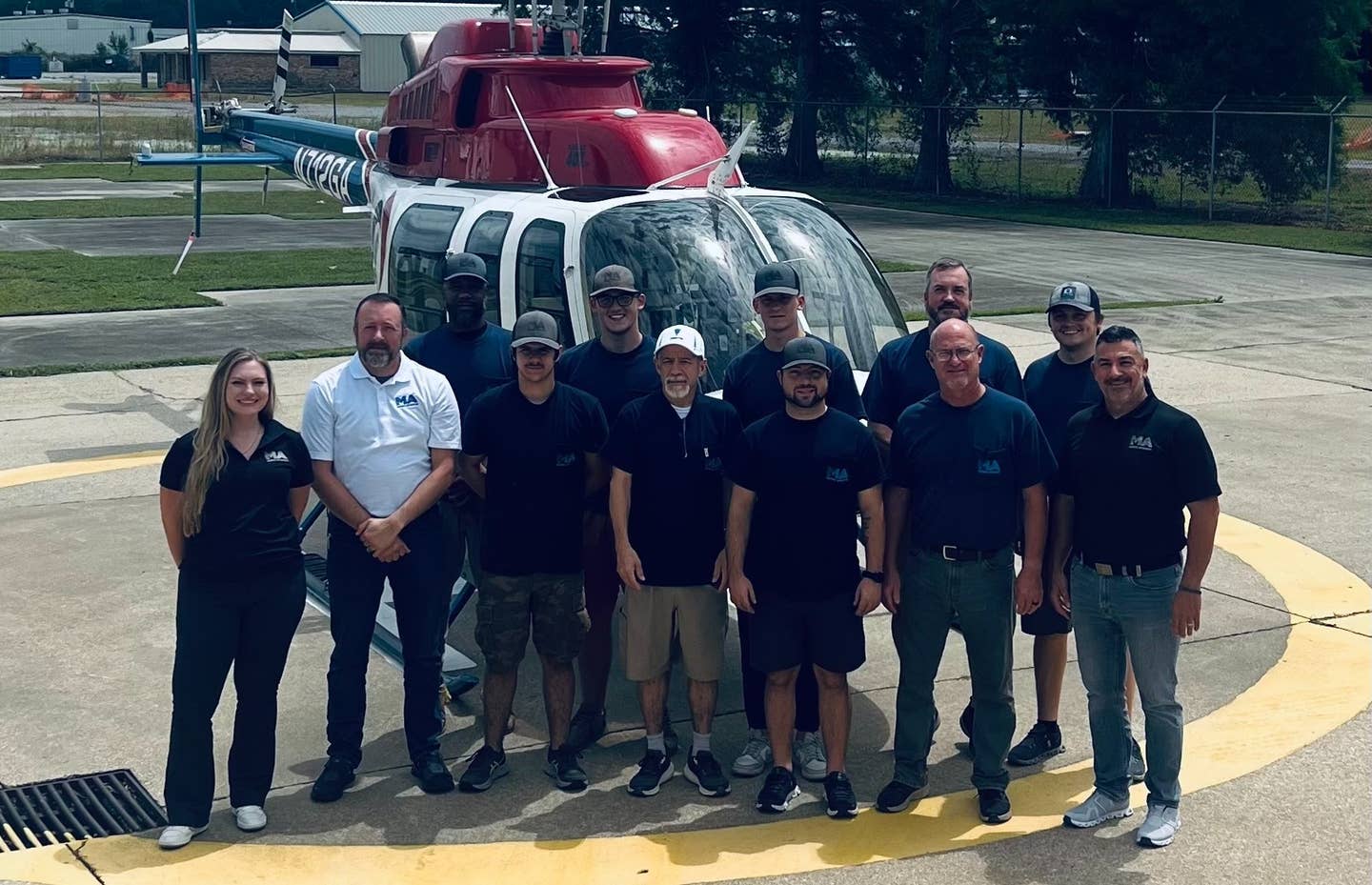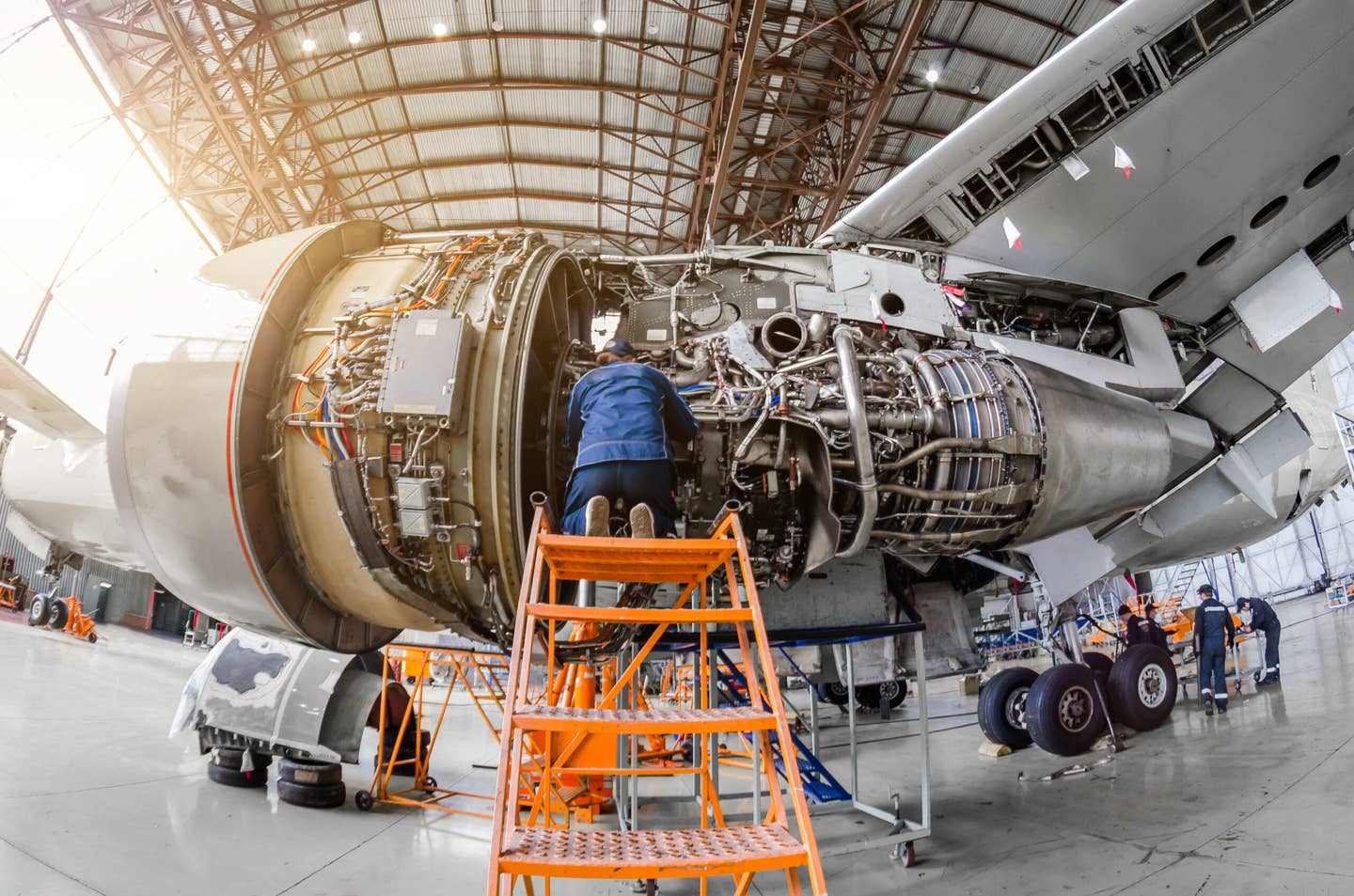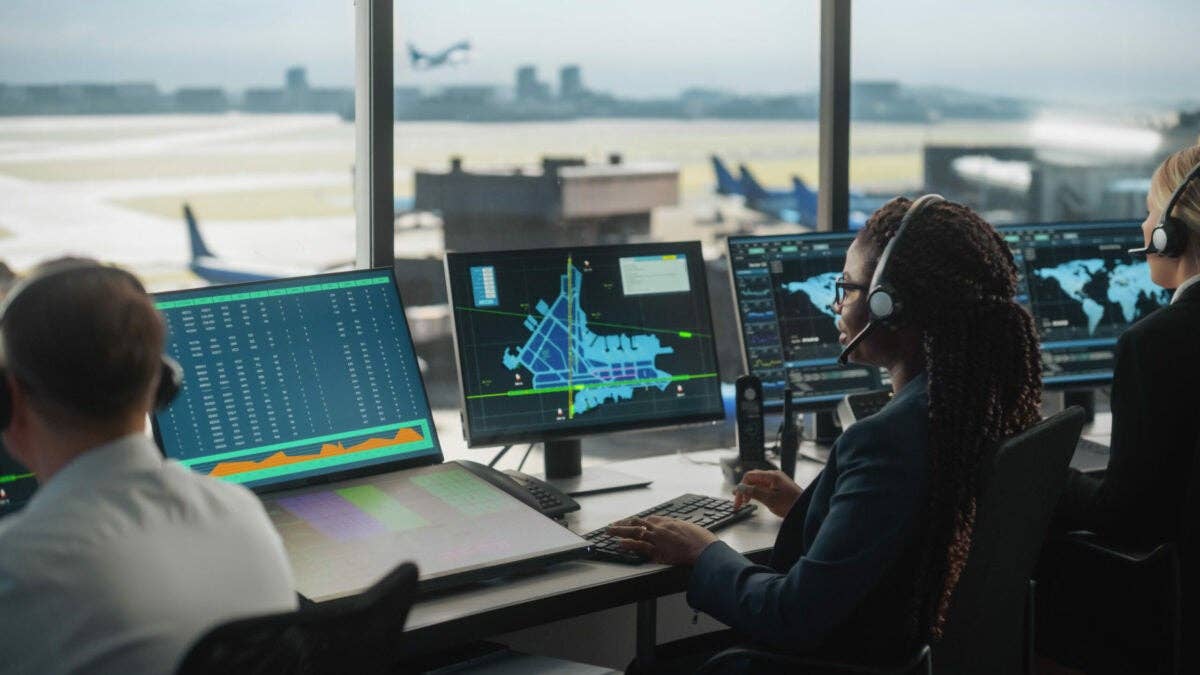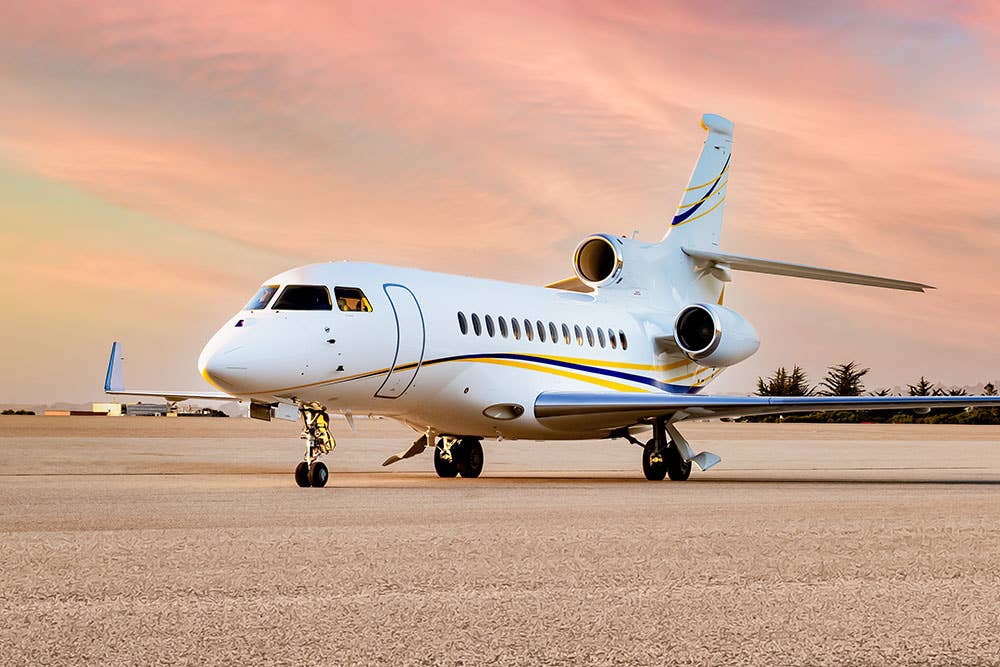
Airport management personnel at Raleigh-Durham International Airport attend a weather briefing on potential impacts of a tropical storm. Raleigh-Durham International Airport
Airport managers oversee all facility activities, from air operations to human resources and administration, in addition to ensuring compliance with TSA and FAA regulations. Jeff Price, a professor in the department of aviation and aerospace science at Colorado’s Metropolitan State University, explained the career path to running an airport. Price also heads Leading Edge Strategies, which creates training certification courses for airport managers approved by the American Association of Airport Executives (AAAE), the field’s accrediting organization.
What education or experience is required to be an airport manager?
People enter the field three ways: They can earn a bachelor’s degree in aviation management; military or airline personnel with operational experience can transfer into the field; and professional pilots often transfer into airport management positions.
Are internships available?
Internships play a huge role in getting into airport management. Several airports have highly regarded professional intern programs, open to any applicant. “We tell students: If the airport you like doesn’t have an internship program, go meet with them and let’s create one,” says Price.
Is having a pilot’s license an advantage for airport management careers?
“We think it’s critical to running the airport,” Price says. “We encourage aviation management students to get a private [pilots’] certificate or at least fly a few times.” An AAAE training video, “The Pilot Perspective,” is often screened for airport management employees without piloting experience.
Once in the field, how do I advance toward becoming an airport manager?
“You can either go small airport or big airport,” Price says, noting that some GA airports are big, and some commercial service airports are small. The advantages of starting small: “You will be doing more in entry-level positions at a small airport,” says Price. “We joke that the job title takes up three or four lines on a card because you do so much.” At big airports, you’ll operate in a larger pond, but responsibilities won’t be as broad. “If you want to be an international airport manager, either path can get you there,” Price says. “But eventually you’ll have to go big.”
What professional certifications are available?
The AAAE, which has some 5,000 members working at 850 airports, offers a Certified Members (CM) accreditation program, as well as the more demanding Accredited Airport Executive (AAE) certification. Additionally, many schools offer a one-year airport management certificate program.
How much do airport managers earn?
Most airports are run by municipalities, with salaries on par with equivalent government positions. The mean annual wage for local government operations managers is $96,570, according to the Bureau of Labor Statistics; Airport Authorities, semi-independent entities, typically pay more. The airport manager at a major facility can earn $200,000 or more annually, Price says. Identical qualifications are also in demand in airport consultancies. “For everything done in airport management, there’s a corresponding consulting job,” he says. “And consultants can make a lot more money.”
What should candidates keep in mind about becoming an airport manager?
“Very few airport managers leave on their own terms,” Price says, noting that they frequently work with appointed officials without aviation experience. “There’s usually some turmoil, often political. You know the person you’re replacing isn’t leaving on good terms, and you’re probably not going to, either. It’s part of what you expect when you take the job.”
Learn more about airport management careers here.

Subscribe to Our Newsletter
Get the latest FLYING stories delivered directly to your inbox






